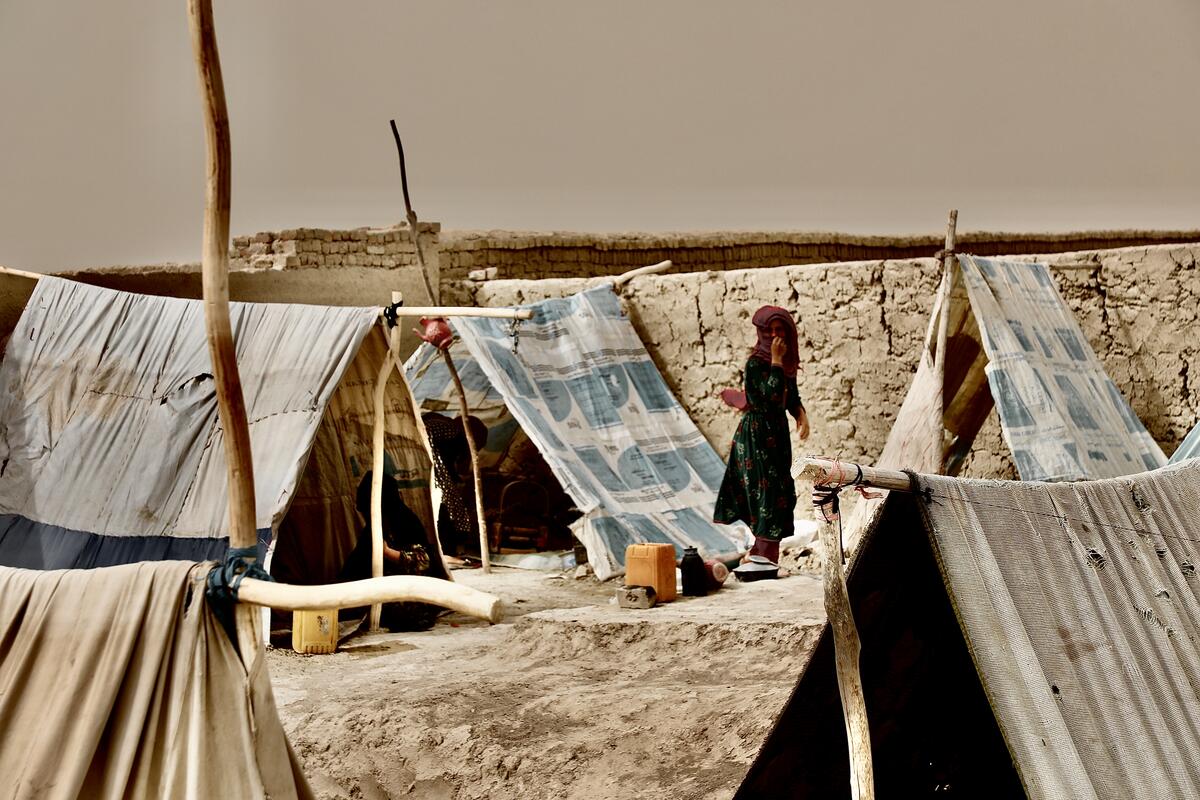UNHCR delivers tents, relief supplies to flood-ravaged areas of Pakistan
UNHCR delivers tents, relief supplies to flood-ravaged areas of Pakistan

ISLAMABAD, Pakistan, September 14 (UNHCR) - Following a request by Pakistan for international humanitarian assistance in responding to severe flooding, UNHCR is sending thousands of family tents and other crucial relief supplies to affected communities in Sindh and Balochistan provinces.
The bulk of the relief items, including 10,000 tents, 20,000 plastic sheets for use as temporary shelters, and 10,000 kits of household items, are being sent to communities in southern Sindh province. Contingent on a coming emergency funding appeal, the UN refugee agency will be able to supply an additional 20,000 tents and other relief items.
Latest government estimates put the number of people affected by the floods in Sindh at 5.3 million, of which 1.7 million are in need of urgent assistance. The flooding has claimed more than 200 lives and destroyed or damaged 1 million homes. Some 280,000 people displaced by the floods are currently living in camps established by the government.
The first UNHCR relief convoy is due to arrive in the town of Badin on Thursday carrying 2,000 tents, 4,000 plastic sheets and 2,000 household kits. The supplies were taken from UNHCR's contingency stocks and are being trucked from its warehouse in Peshawar.
The relief items are being supplied to the National Rural Support Programme, a Pakistani aid organization and UNHCR partner agency with extensive experience of working in emergency operations.
The tents and other supplies that will be distributed over the coming days in Sindh will aid around 140,000 people. In Balochistan, UNHCR has responded to a request from the Provincial Disaster Management Authority by supplying 800 tents and 900 plastic sheets as well as hundreds of other relief items.
"Many of the affected in this emergency were still recovering from last year's catastrophic floods. The people of Pakistan have already demonstrated their courage in a crisis and UNHCR and the rest of the humanitarian community must do whatever we can to support them now," said Mengesha Kebede, UNHCR's representative in Pakistan.
UNHCR is leading the humanitarian community's effort of supporting the government in its responsibility of ensuring that the most vulnerable members of flood-affected communities are protected during the emergency and during the rehabilitation period to come.
A rapid protection assessment which involved specially trained enumerators speaking with 6,000 women, men, youth and community leaders, revealed many areas where urgent protection initiatives are needed. Children who have become separated from their families need to be traced and reunified. Vulnerable persons such as those living with disabilities, female-headed households and minority groups need to have full access to assistance without discrimination.
The emergency is also exacerbating existing protection problems such as child labour and abuse and domestic violence, indicating the need for psychosocial support to help people to cope in flood-ravaged areas.
UNHCR and its partners will support the government to help those affected to return home and rebuild their lives in safety and dignity.
Hear the story of one Pakistani flood victim











